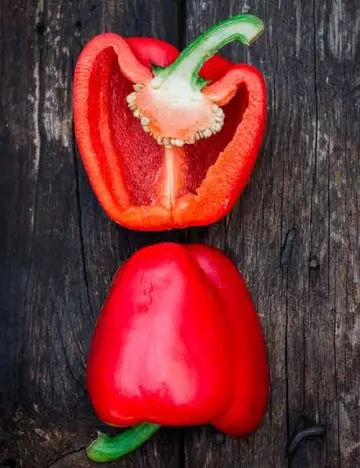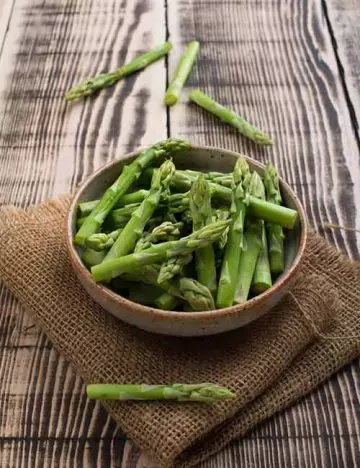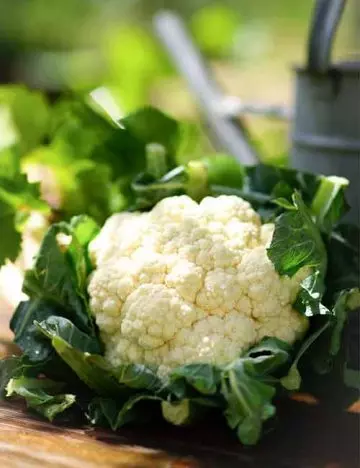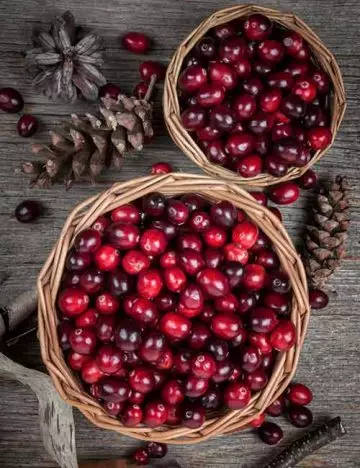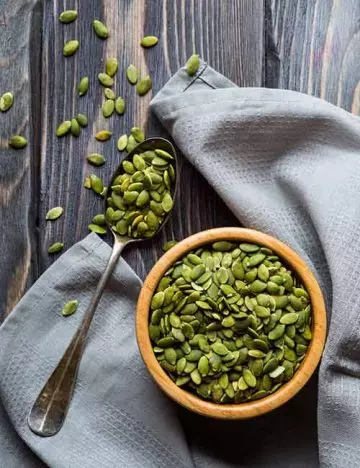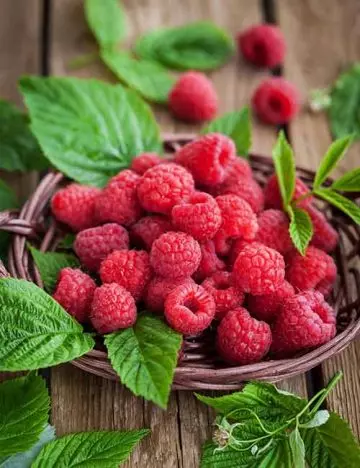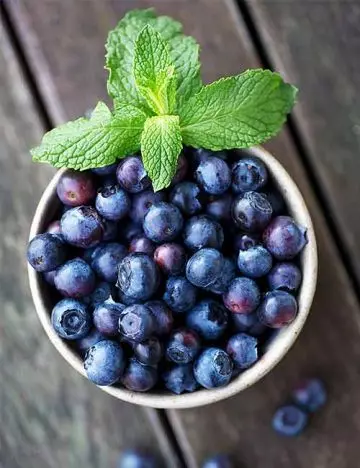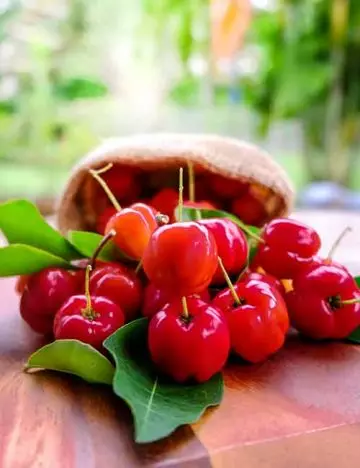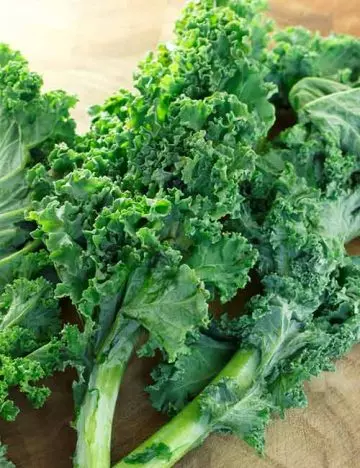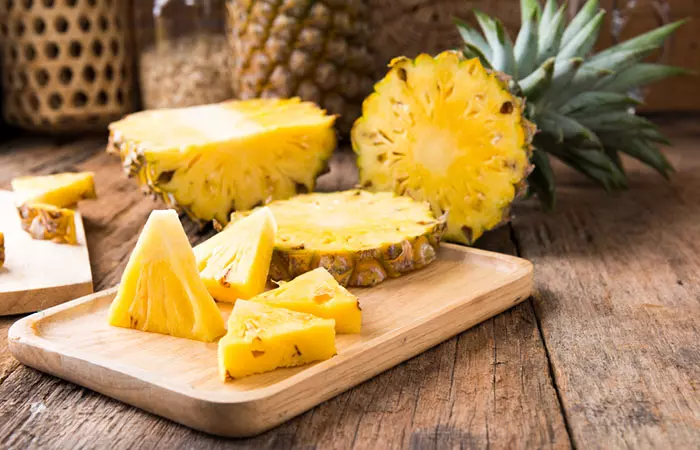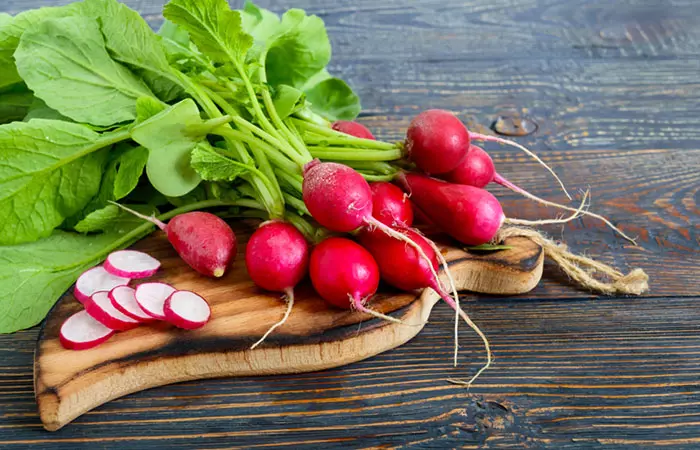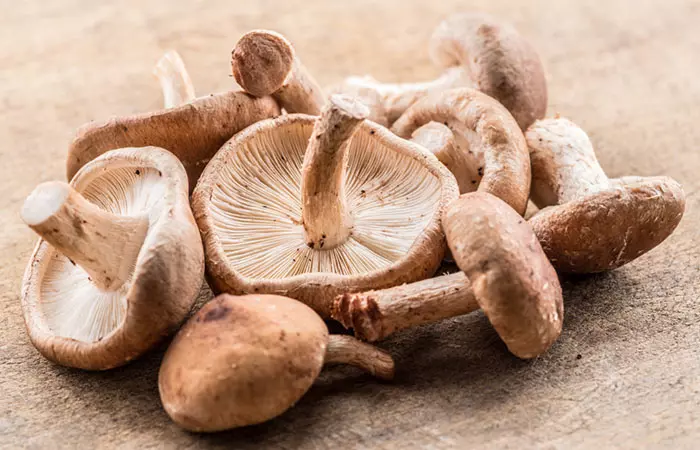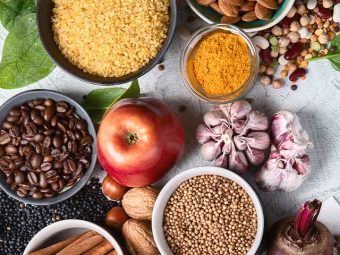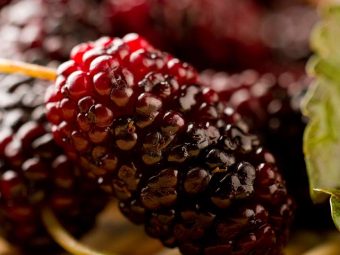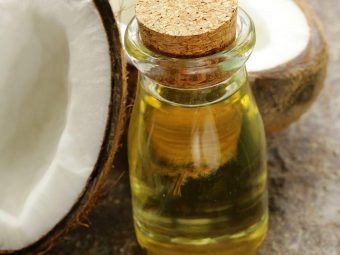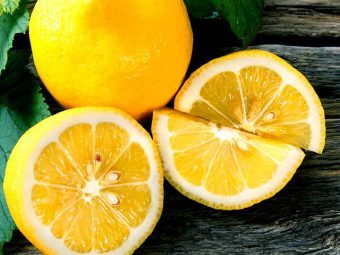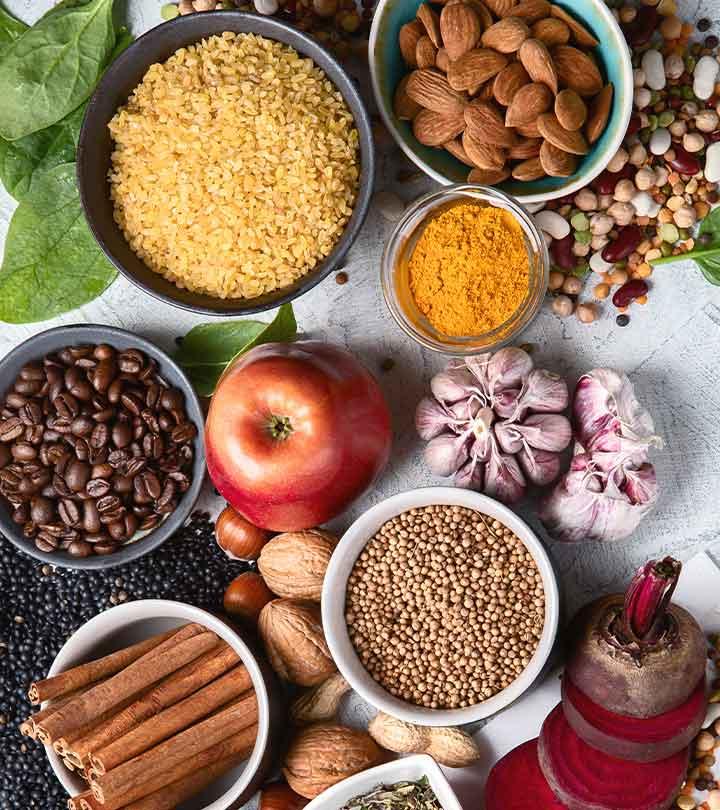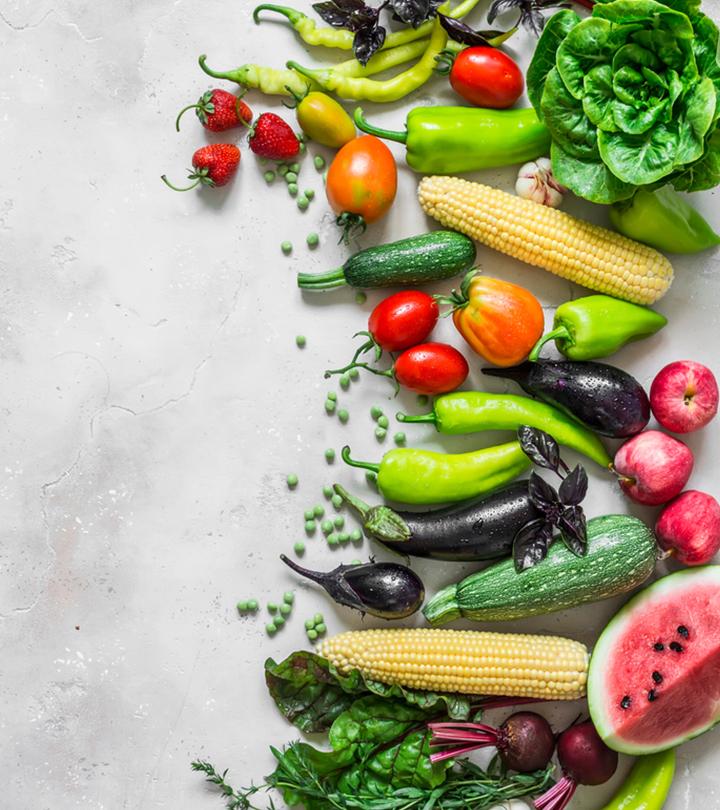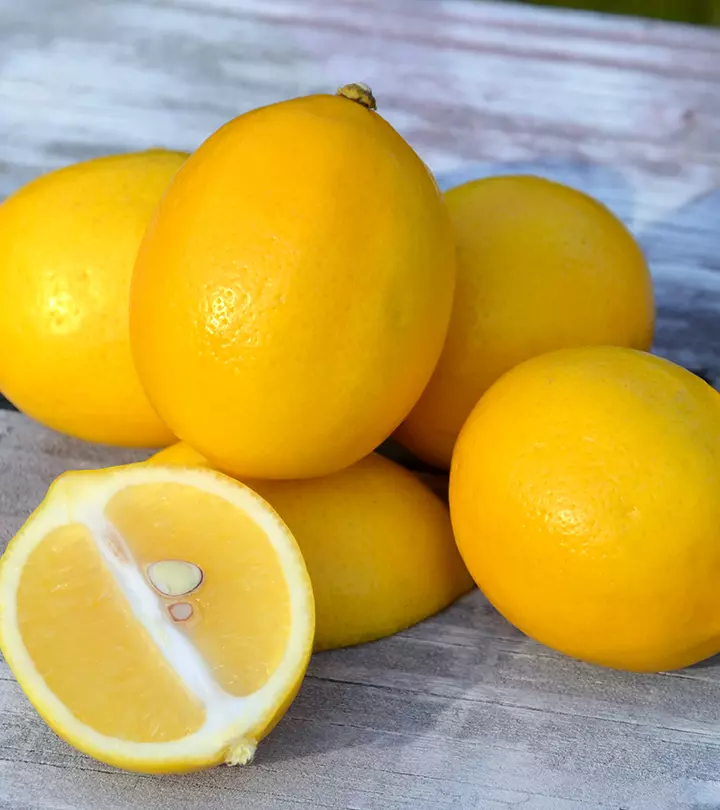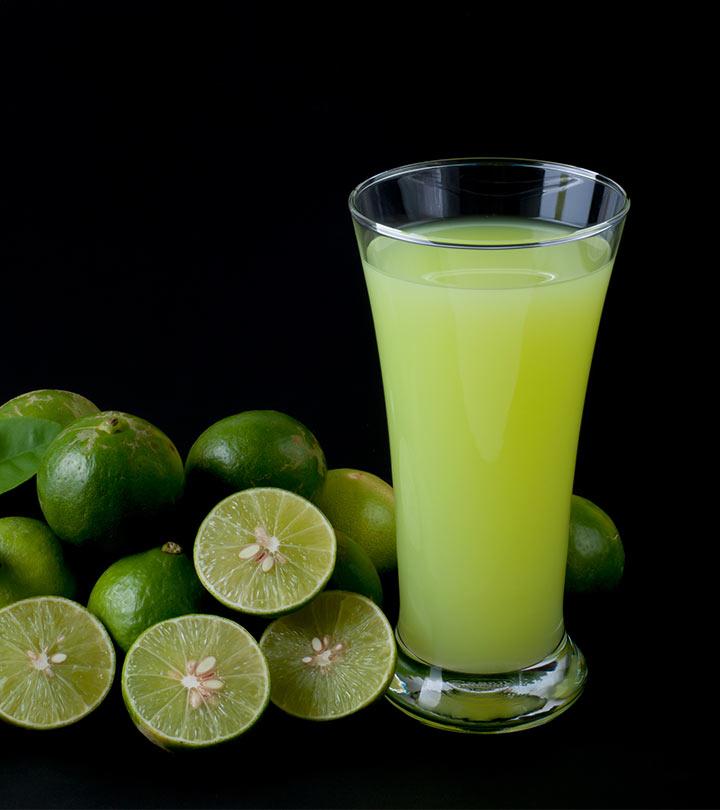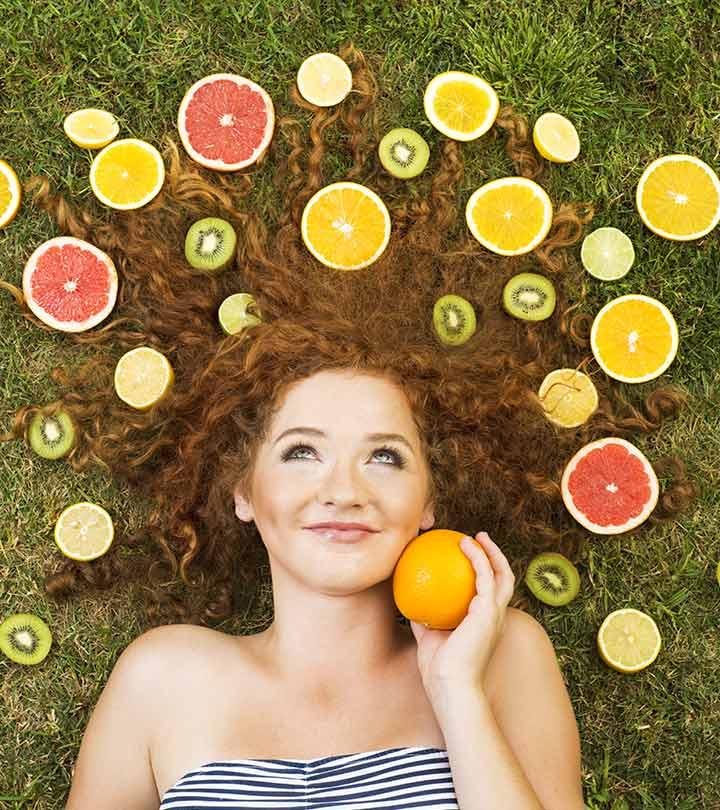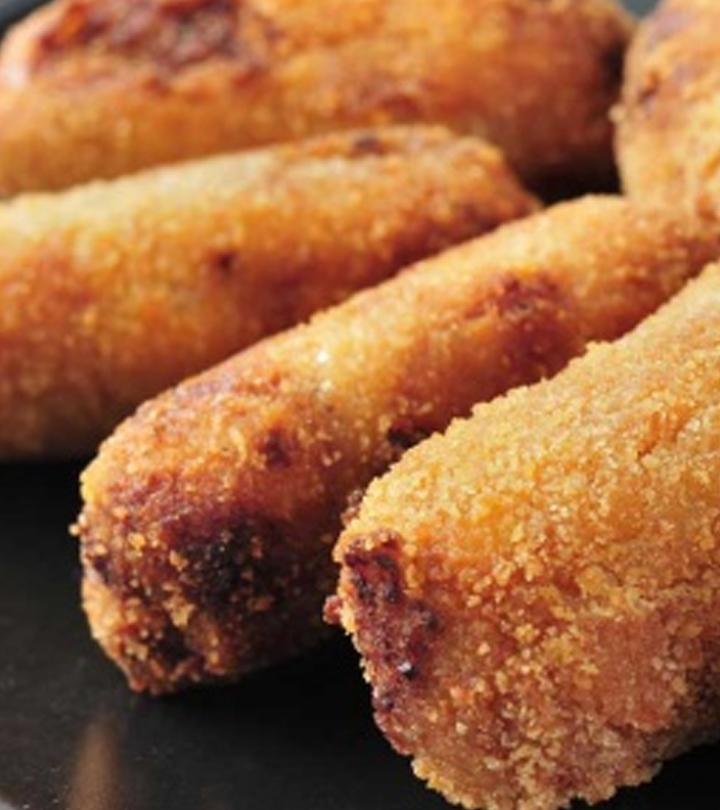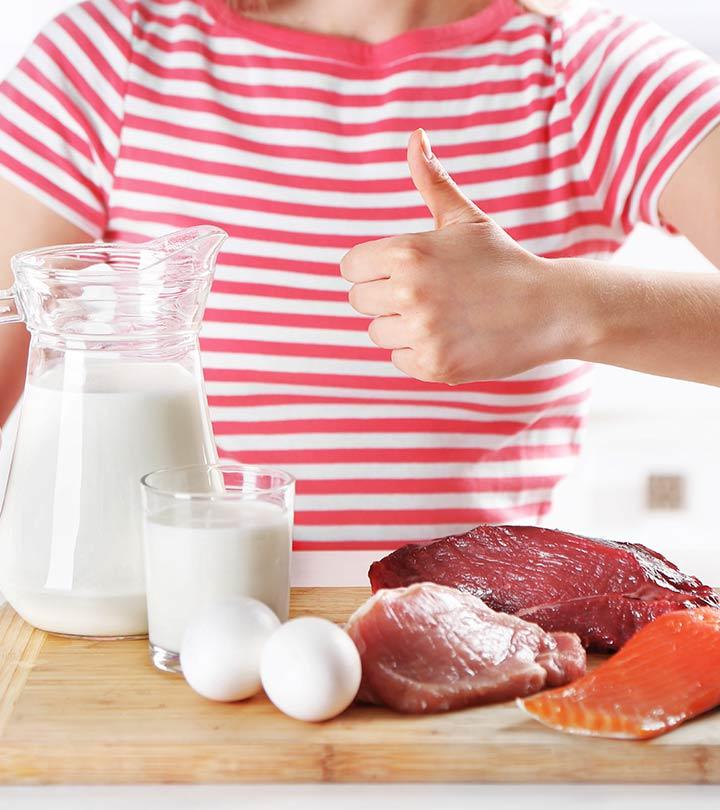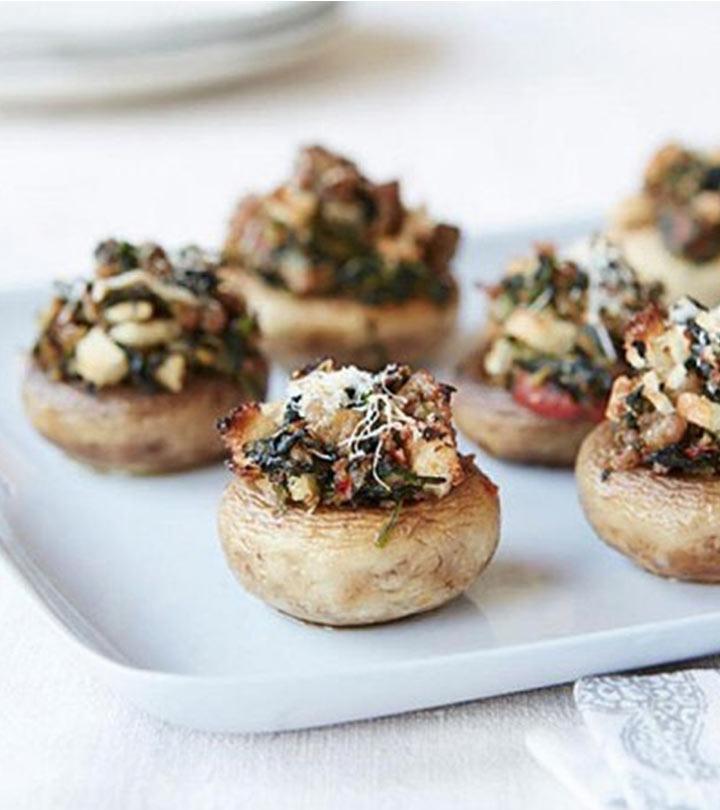23 Best Foods For A Healthy Kidney That Everyone Should Eat
Include these in your diet and switch to a healthy lifestyle to keep kidney issues at bay.

Image: StyleCraze
The kidneys perform a crucial role in our bodies by removing toxins and excess fluids. Also, they control blood pressure and stimulate RBC production (1). Therefore, incorporating foods for a healthy kidney in your diet can promote kidney health and protect the organs from the negative effects of an unhealthy lifestyle.
As per the National Kidney Foundation, millions of people will be affected by kidney disease (2). Hence, it’s time to think about these vital organs and start protecting them. So, how can we protect the kidneys? What foods help repair kidneys? We can help you with these questions. Learn more about the foods that positively affect kidneys and start including them in your diet today.
 Trivia
TriviaIn This Article
23 Foods For Healthy Kidneys
1. Water
Cal – 0 Protein – 0 g Fat – 0 g Carbs – 0g
Water is a miracle potion. It has the power to bring you back to health. But do not go overboard. The recommended amount of water to be consumed every day is 8 glasses for women and 13 for men. It is best to consult your doctor to understand how many glasses of water you should drink per day depending on the condition of your kidneys and daily activity.
2. Cabbage
Cal – 22 Protein – 1 g Fat – 0 g Carbs – 5 g
Cabbage is a leafy vegetable that is packed with phytochemicalsi XThe bioactive nutrients produced by plants that may have multiple health benefits, including protecting kidney health. . The antioxidants present in it help scavenge the harmful free radicals in the body, thereby reducing the risk of cancer, cardiovascular disease, and renal dysfunction. Cabbage is a rich source of vitamins and minerals, but not the ones that are potentially harmful to the kidneys.
 Quick Tip
Quick Tip3. Red Bell Pepper
Cal – 46.2 Protein – 1 g Fat – 0 g Carbs – 9 g
Red bell peppers are good for kidney health as they are low in potassium. They also add color and taste to the dish, along with vitamins C, B6, A, folic acid, and fiber. Red bell peppers contain the antioxidant lycopene that offers protection against some types of cancer. You can add red bell peppers to tuna, chicken salad or just have them raw.
A study was conducted using 18 different pepper landraces from the Valencian community in Spain. It aimed at determining the total nutritional value of the peppers and worked towards improving their quality and preserving some endangered varieties. The results showed high levels of lycopene and total phenolic concentrations in both red and green bell pepper varieties. This data can be used as a guide for enhancing the breeding process for antioxidant-rich varieties with an abundance of Vitamin C and phenolic content.
Total Lycopene Concentration In Red Bell Pepper Varieties
Source: Bioactive Compounds and Antioxidant Capacity of Valencian Pepper Landraces4. Onion
Cal – 64 Protein – 2 g Fat – 0 g Carbs – 15 g
Onion breath might be a turn-off, but onions help keep your kidneys properly functioning. They contain flavonoids and quercetin that prevent the deposition of fatty material in the blood vessels. Quercetin is an antioxidant that can reduce the risk of heart disease and cancer. Onions are kidney-friendly and low in potassium. They also contain chromium that helps metabolize fats, proteins, and carbohydrates.
5. Asparagus
Cal – 27 Protein – 3 g Fat – 0 g Carbs – 5 g
Asparagus is low-cal and loaded with vitamins A, K, and C. In hypertensive rats, asparagus had shown to preserve renal function (3). But it is a little on the higher side in minerals like potassium, calcium, and phosphorus. So, you must talk to your doctor before consuming asparagus. You can grill it or blanch with other kidney-friendly foods for dinner or lunch.
6. Garlic
Cal – 203 Protein – 9 g Fat – 1 g Carbs – 45 g
Like onions, garlic has a pungent smell. However, it is one of the most potent herbal medicines. Plus, it helps enhance the flavor of foods to which it is added. Researchers have found significant evidence that garlic juice, along with metformin (a drug prescribed for diabetes type 2 patients), showed renoprotectivei XThe quality of a substance to protect the kidneys from the harmful effects of chemicals and drugs introduced into the body. effects (4).
7. Cauliflower
Cal – 25 Protein – 2 g Fat – 0 g Carbs – 5 g
Cauliflower is a kidney-friendly cruciferousi XPlants belonging to the cabbage family, such as kale, broccoli, bok choy, Brussels sprouts, and similar leafy vegetables. superfood that is a rich source of vitamin C, folate, and fiber. It also contains compounds that are important for the liver and neutralize toxic substances in the body. Cauliflower can be consumed boiled, blanched, raw, as a dip, or in salads.
8. Apples
Cal – 65 Protein – 0 g Fat – 0 g Carbs – 17 g
Apple is a rich source of vitamins, minerals, and fiber. It has anti-inflammatory and antioxidant properties that help reduce bad cholesterol, heart disease, cancer, and diabetes (5). Since diabetes is closely related to renal failure, consuming apples can help protect you from kidney problems. Apples can be eaten raw or cooked. You can also make a tasty beverage.
9. Cranberries
Cal – 51 Protein – 0 g Fat – 0 g Carbs – 13 g
Cranberry juice is a popular home remedy for urinary tract infection (UTI). Due to its antioxidant properties, it is a great natural antibiotic that prevents any bacterial growth in the digestive tract or the kidneys. A research study showed that cranberries had the potential to treat calcium oxalate kidney stone (6). Always consume fresh cranberries or use fresh ones to make juice. However, do not drink too much of it to prevent overworking the kidneys.
10. Fatty Fish
Cal – 175 Protein – 19 g Fat – 10 g Carbs – 0 g
Fish is a high-quality source of protein and polyunsaturated fatty acids (PUFA). Among the components of PUFA are omega-3 fatty acids, which are beneficial for reducing inflammation, scavenging free oxygen radicals, preventing heart disease, lowering LDL cholesterol, and protecting the kidneys. Scientists have found that consuming fish PUFAs can slow down the progression of kidney disease (7). Research also suggests to avoid consuming blue bobo, parrot sand bass, and yellowedge, and instead consume yellowtail snapper, broomtail grouper, and southern flounder (8).
11. Pumpkin Seeds
Cal – 285 Protein – 12 g Fat – 12 g Carbs – 34 g
These bright green seeds are more than just pretty. Loaded with dietary fiber, vitamin E, zinc, protein, copper, and iron, they have been scientifically proven to lower the risk of bladder stones (9). Since the seeds are also high in phosphorus and might increase the potassium levels in your body, talk to your doctor before consuming them if you have renal issues.
12. Lemon Juice
Cal – 61 Protein – 1 g Fat – 0 g Carbs – 21 g
Lemon juice has the potential to help treat kidney problems. The vitamin C and citric acid in it help maintain the internal pH, promoting better health and stronger immunity. Drink lemon juice in the morning or before lunch. Make sure to dilute it in a cup of water and refrain from adding refined sugar.
13. Raspberries
Cal – 140 Protein – 1 g Fat – 1 g Carbs – 15 g
Raspberries contain ellagic acid that neutralizes the harmful free radicals in the human body. Dr. Joan Brookhyser Hogan recommends raspberries for patients with kidney disease in Dialysis & Transplantation (10). The red color indicates that these berries contain anthocyaninsi XWater-soluble pigments found in red, blue, and purple fruits, which may have antioxidant and anti-inflammatory properties. , and they are also a good source of dietary fiber, vitamin C, manganese, and folate. Raspberries are also helpful in preventing cancer cell growth.
14. Purple Sweet Potato
Cal – 180 Protein – 2 g Fat – 1 g Carbs – 32 g
As mentioned earlier, kidney failure or disease is closely related to diabetes. And diabetes is connected to bad eating habits and obesity. So, if you are obese, your kidneys might get affected. In this context, scientists have conducted experiments by feeding obese laboratory mice with purple sweet potatoes and found that they helped reduce inflammation and body weight. This, in turn, could help prevent kidney dysfunction (11). However, you should talk to your doctor before consuming these as they are high in potassium.
15. Blueberries
Cal – 84 Protein – 1 g Fat – 0 g Carbs – 21 g
Blueberries are packed with antioxidants that help cleanse the body of toxins. They are rich in nutrients that can help reduce inflammation. Researchers found that blueberries could help inhibit the signaling pathways that lead to renal failure in animals with metabolic syndrome (12). So, include them in your breakfast to lose weight and protect your kidneys.
16. Strawberries
Cal – 49 Protein – 1 g Fat – 0 g Carbs – 12 g
Strawberries are a rich source of antioxidants, vitamin C, manganese, and fiber. They have anti-inflammatory and anticancer properties and are a good choice for a healthy heart and kidneys. However, their contribution to better kidney health is contested. So, talk to your doctor before consuming them.
17. Cherries
Cal – 51 Protein – 1 g Fat – 0.3 g Carbs – 13 g
Cherries are a rich source of antioxidants and phytochemicals that help protect your heart and kidneys. Consuming them daily helps in reducing inflammation in the body, especially in the kidneys.
18. Red Grapes
Cal – 104 Protein – 1.1 g Fat – 0.2 g Carbs – 27 g
Red grapes are loaded with a natural polyphenolic compound known as resveratrol, which offers many health benefits like improving heart health and protecting the kidneys. Resveratrol helps ameliorate renal injuries, such as ischemia-perfusion injury, drug-induced injury, diabetic nephropathy, etc. (13). So, consume red grapes in adequate amounts to boost the health of your kidneys.
19. Kale
Cal – 33 Protein – 2.9 g Fat – 0.6 g Carbs – 6 g
Kale is a rich source of nutrients that regulate postprandial blood sugar postprandial blood sugar levelsi XThe measure of blood sugar levels taken after a meal. In nondiabetic individuals, normal readings are below 140 mg/dl. . Since diabetes is closely related to kidney failure, consuming kale can help take care of both diabetes and diabetic nephropathy (14). However, you must talk to your doctor before consuming kale, especially if you are already suffering from kidney disease.
20. Watermelon
Cal – 46 Protein – 0.9 g Fat – 0.2 g Carbs – 11 g
Watermelon is loaded with a potent antioxidant – lycopene. It helps scavenge the harmful free oxygen radicals, thereby preventing renal injury (15). But do not consume watermelon in huge quantities as that can backfire. Talk to your doctor before consuming it if you already are suffering from kidney disease.
This is the list of foods you can consume after consulting your doctor. Now, let me tell you which foods you must avoid at all costs.
21. Pineapple
Cal – 50 Protein – 0.5 g Fat – 0.12 g Carbs – 13.1 g
Animal studies suggest that the peptides and antioxidants in pineapples may decrease creatinine levels and improve kidney function (16). Further, its low potassium content may be beneficial to individuals with chronic kidney disease to aid in flushing out excess potassium (17).
22. Radish
Cal – 16 Protein – 0.68 g Fat – 0.1 g Carbs – 3.4 g
The low potassium content in radish makes it good for your kidney health. You can consume boiled radish as compared to raw radish as it contains less potassium to manage your kidney issues (18).
23. Shiitake Mushrooms
Cal – 34 Protein – 2.24 g Fat – 0.49 g Carbs – 6.79 g
The antioxidant and anti-inflammatory properties in shiitake mushrooms may help reduce inflammation and creatinine and uric acid levels (19). You can consult a dietitian to help you understand the amount of shiitake mushrooms you can consume daily.
Foods To Avoid
- Nuts and seeds
- Peanut butter
- Lentils
- Dried beans
- Bananas
- Spinach
- Red meat
- GMOsi XGenetically Modified Organism - in food, it refers to food products derived from plants whose genetic makeup is altered.
- High-sodium foods
- Dairy
- Artificial sweeteners
- Caffeine
- Carbonated beverages
- Chicken with skin
- Tomato
- Breakfast cereal
- Wild and brown rice
- Canned or bottled iced tea
- Bread and pasta made of whole grains
- Orange
- Potato
- Alcohol
Infographic: 10 Best Foods For Healthy Kidneys
Your general well-being and overall health depend on how well you maintain your kidneys. Healthy kidneys enable your body to eliminate waste and create hormones to support optimal body functioning. Hence, consuming fruits and vegetables that are good for your kidneys is critical.
Check out the infographic below to learn about the 10 best kidney-friendly foods you can incorporate into your diet. Illustration: StyleCraze Design Team
Consuming a few foods for a healthy kidney ensures their optimal functioning and minimizes the negative effects of an unhealthy lifestyle. Such foods include cabbage, red bell peppers, onion, garlic, cauliflower, apples, strawberries, fatty fish, pumpkin seeds, kale, and watermelon. Along with these foods, following a healthy diet by consuming lean protein, legumes and low-fat dairy in moderate amounts, maintaining a healthy lifestyle, cutting down on alcohol and smoking, and exercising regularly can help promote kidney health.
Frequently Asked Questions
Is coffee good for kidneys?
Possibly. The risk of developing chronic kidney disease (CKD), end-stage kidney disease (ESKD), and albuminuriai XA condition where excess albumin, a blood protein, is found in the urine. This is a sign of kidney disease. were significantly lower in individuals who drank coffee (20).
Is cucumber good for kidneys?
No. Cucumber is rich in oxalates that may lead to the formation of calcium oxalate stones in kidneys (21).
Is ginger good for kidneys?
Yes. Researchers have found that ginger extract may help boost kidney function in rats with injured kidneys. Ginger helps by scavenging free radicals, reducing inflammation, and restoring kidney structure (22).
Key Takeaways
- Onions can prevent fat deposition in your blood vessels and aid kidney functions.
- Cauliflowers can neutralize toxins in the body and improve the health of your kidneys.
- Cranberry juice is a popular remedy for urinary tract infections due to its antibiotic properties. It may also help treat kidney stones.
- For people with kidney diseases, it is better to avoid consuming caffeine, artificial sweeteners and alcohol.
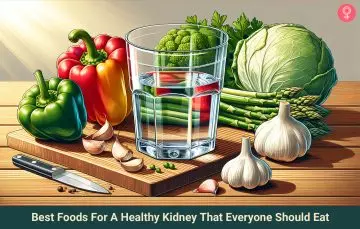
Image: Dall·E/StyleCraze Design Team
Discover the key to a healthy kidney with a curated list of the best foods for optimal kidney function. Explore the essential dietary choices that benefit everyone in this enlightening video.
References
Articles on StyleCraze are backed by verified information from peer-reviewed and academic research papers, reputed organizations, research institutions, and medical associations to ensure accuracy and relevance. Read our editorial policy to learn more.
- Erythropoietin regulation of red blood cell production: from bench to bedside and back
https://www.ncbi.nlm.nih.gov/pmc/articles/PMC7503180/ - Global Facts: About Kidney Disease
https://kidney.org/kidneydisease/global-facts-about-kidney-disease - Green asparagus (Asparagus officinalis) prevented hypertension by an inhibitory effect on angiotensin-converting enzyme activity in the kidney of spontaneously hypertensive rats
https://pubmed.ncbi.nlm.nih.gov/23647085/ - Renoprotective effects of garlic
https://www.ncbi.nlm.nih.gov/pmc/articles/PMC4205995/ - Apple phytochemicals and their health benefits
https://www.ncbi.nlm.nih.gov/pmc/articles/PMC442131/ - Influence of cranberry juice on the urinary risk factors for calcium oxalate kidney stone formation
https://pubmed.ncbi.nlm.nih.gov/14616463/ - Omega-3 and renal function in older adults
https://www.ncbi.nlm.nih.gov/pmc/articles/PMC2863302/ - [Fish in renal patient’s diet: phosphorus: n-3 fatty acids ratio]
https://pubmed.ncbi.nlm.nih.gov/20415059/ - The effect of pumpkin seeds on oxalcrystalluria and urinary compositions of children in hyperendemic area
https://pubmed.ncbi.nlm.nih.gov/3799495/ - Plant-based diets in kidney disease management
https://onlinelibrary.wiley.com/doi/full/10.1002/dat.20594 - Purple sweet potato color ameliorates kidney damage via inhibiting oxidative stress mediated NLRP3 inflammasome activation in high fat diet mice
https://pubmed.ncbi.nlm.nih.gov/24795233/ - A blueberry-enriched diet improves renal function and reduces oxidative stress in metabolic syndrome animals: potential mechanism of tlr4-mapk signaling pathway
https://www.ncbi.nlm.nih.gov/pmc/articles/PMC4221362/ - Renal protective effects of resveratrol
https://www.ncbi.nlm.nih.gov/pmc/articles/PMC3863562/ - Intake of kale suppresses postprandial increases in plasma glucose: A randomized
double-blind - Lycopene and kidney; future potential application
https://www.ncbi.nlm.nih.gov/pmc/articles/PMC5297483/ - Kidney therapeutic potential of peptides derived from the bromelain hydrolysis of green peas protein
https://www.ncbi.nlm.nih.gov/pmc/articles/PMC6880536/ - Chronic kidney disease and dietary measures to improve outcomes
https://www.ncbi.nlm.nih.gov/pmc/articles/PMC6623973/ - Provision of renal-specific nutrition knowledge for changing dietary practice in Bangladeshi hemodialysis patients
https://www.ncbi.nlm.nih.gov/pmc/articles/PMC10194273/ - Immunomodulatory Properties of Polysaccharides from Lentinula edodes
https://www.ncbi.nlm.nih.gov/pmc/articles/PMC9409024/ - Effect of coffee consumption on renal outcome: a systematic review and meta-analysis of clinical studies
https://pubmed.ncbi.nlm.nih.gov/32958376/ - Medical management of renal stone
https://www.ncbi.nlm.nih.gov/pmc/articles/PMC3313741/ - Therapeutic potential of ginger against renal injury induced by carbon tetrachloride in rats
https://www.ncbi.nlm.nih.gov/pmc/articles/PMC3329925/







